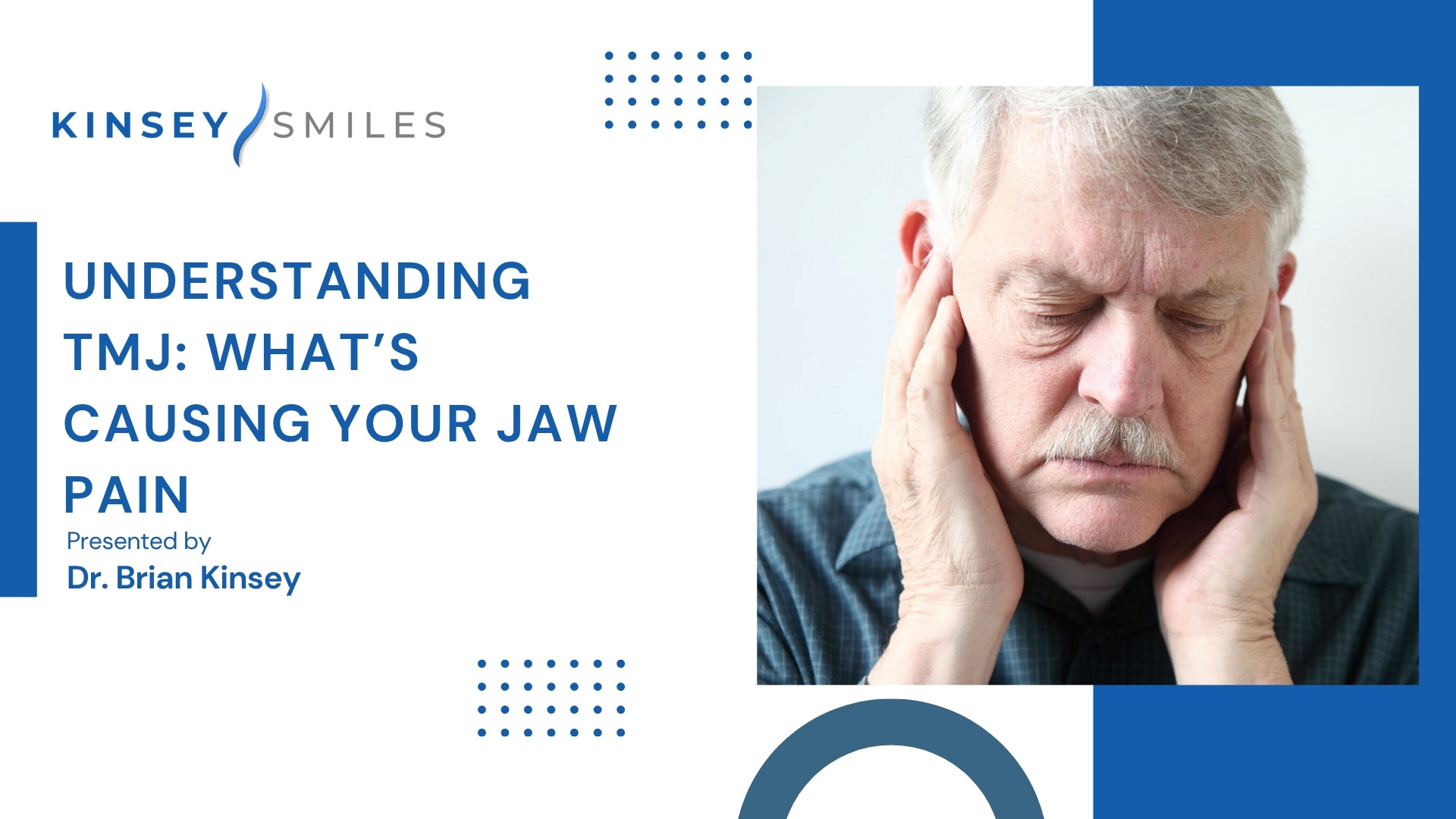Do you ever experience a dull or a sharp pain in your jaw that just won’t quit? You’re not the only one. Jaw pain is very common, and one reason is an issue with the temporomandibular joint (TMJ). This small joint links your jaw to the side of your skull and allows you to speak, chew, and yawn. If something isn’t quite right with the TMJ, though, it can cause pain and more issues.
🧾 Table of Contents
Here we talk about TMJ jaw pain causes, symptoms, and what you can do about it. If you are in pain, a professional dentist can assist you in obtaining the right treatment.
What Is TMJ, And Why Does It Hurt
Your TMJ is a sliding hinge that allows your jaw to move side to side and up and down. When this joint is irritated or strained, it may cause facial, ear, and neck pain.
Many things can cause TMJ pain, such as:
- Grinding your teeth during sleep (bruxism)
- Clenching your jaw when you are stressed
- Arthritis is eroding the joint
- Injury to the face or jaw
- Issues with your bite or teeth alignment
And if your jaw is locked or you hear clicking in your jaw when you open your mouth, these are also signs of TMJ disorder.
Recognizing The Symptoms Of TMJ Disorder
Below, you’ll find common symptoms of TMJ disorder that may affect your daily life:
- Pain/tenderness at the jaw joint
- Aching around the ears or face
- Difficulty opening your mouth wide
- A popping or clicking sound when moving the jaw
- Headaches that start near the temples
- Pain when chewing tough foods
Some people also feel swelling on the side of the face or notice that their bite feels uneven. If you experience any of these issues, it is a good idea to talk to a dental professional for guidance.
When Should You See A Dentist For TMJ Pain?
Mild jaw discomfort sometimes goes away with rest and self-care. However, you should consider seeing a dentist in Dacula if:
- The pain does not improve after a few weeks
- You cannot open or close your mouth fully.
- Your jaw locks in place.
- You have severe headaches or earaches.
- You notice swelling or warmth around the joint.
An in-depth evaluation with a skilled professional can help figure out what is causing your TMJ problems and recommend the right steps.
Exploring TMJ Treatment Options
If you are wondering about TMJ treatment options, there are many ways to ease the pain and improve jaw function. Treatments can be simple or more advanced depending on how severe your symptoms are.
Some common treatment options to treat TMJ may include
- Eating soft foods in order to rest the jaw
- Applying ice packs to reduce swelling
- Doing gentle jaw stretches.
- Taking anti-inflammatory medicine
- Wearing a night guard to stop teeth grinding
- Physical therapy to improve movement
In some cases, your dentist may recommend injections or surgery if other methods do not help. Most people get relief with conservative care and do not need invasive procedures.
What Makes TMJ Different From Other Jaw Problems?
Many people confuse TMJ disorder with other issues, such as toothaches or sinus infections. Here are some signs that point to TMJ:
- Pain that gets worse when chewing or talking
- A clicking or popping sound in the jaw
- The jaw feels stiff or stuck.
- Tenderness right in front of your ear
While tooth pain often feels sharp and centered around a tooth, TMJ pain can spread across the entire side of your face. A professional evaluation helps to rule out other causes and confirm whether TMJ is the problem.
How Lifestyle Changes Can Help TMJ Pain
Making small changes to your daily habits can also help manage discomfort. Here are some tips to try:
- Avoid chewing gum or biting fingernails
- Using both sides of your mouth to chew.
- Practice stress-reducing techniques such as meditation or yoga.
- Keep good posture to reduce strain on your jaw.
- Sleep on your back with a supportive pillow.
If you follow these steps consistently, you may notice less pain and better jaw movement over time.
Find Relief For Your Jaw Pain Today
If you are tired of living with ongoing jaw pain, it is time to get answers and lasting relief. Our caring team at Kinsey Smiles is ready to help you understand the cause of your TMJ discomfort and develop an individualized treatment plan.
Call our office today to schedule a consultation or learn more about how we can help you feel comfortable and confident again. Your healthy, pain-free smile starts here.

